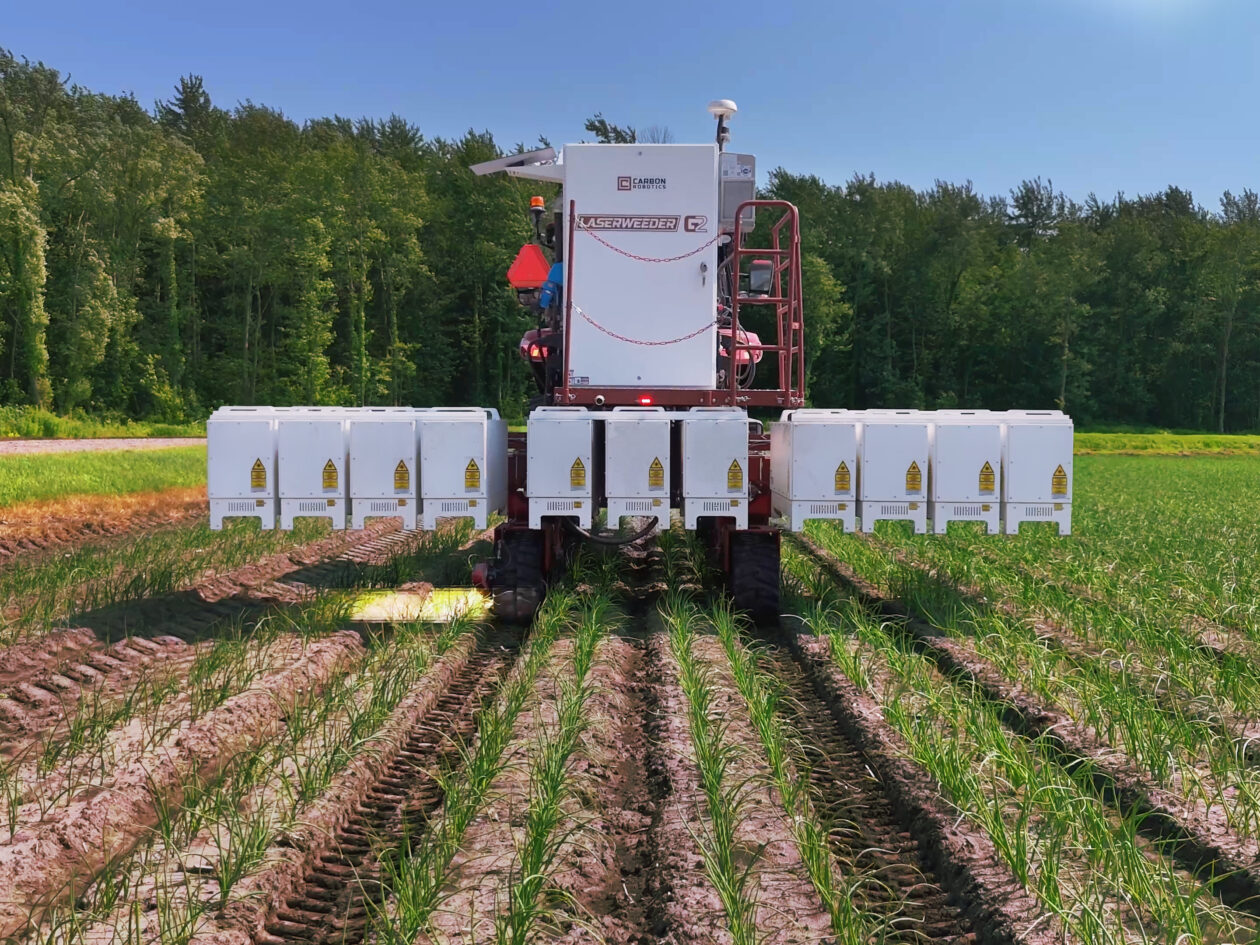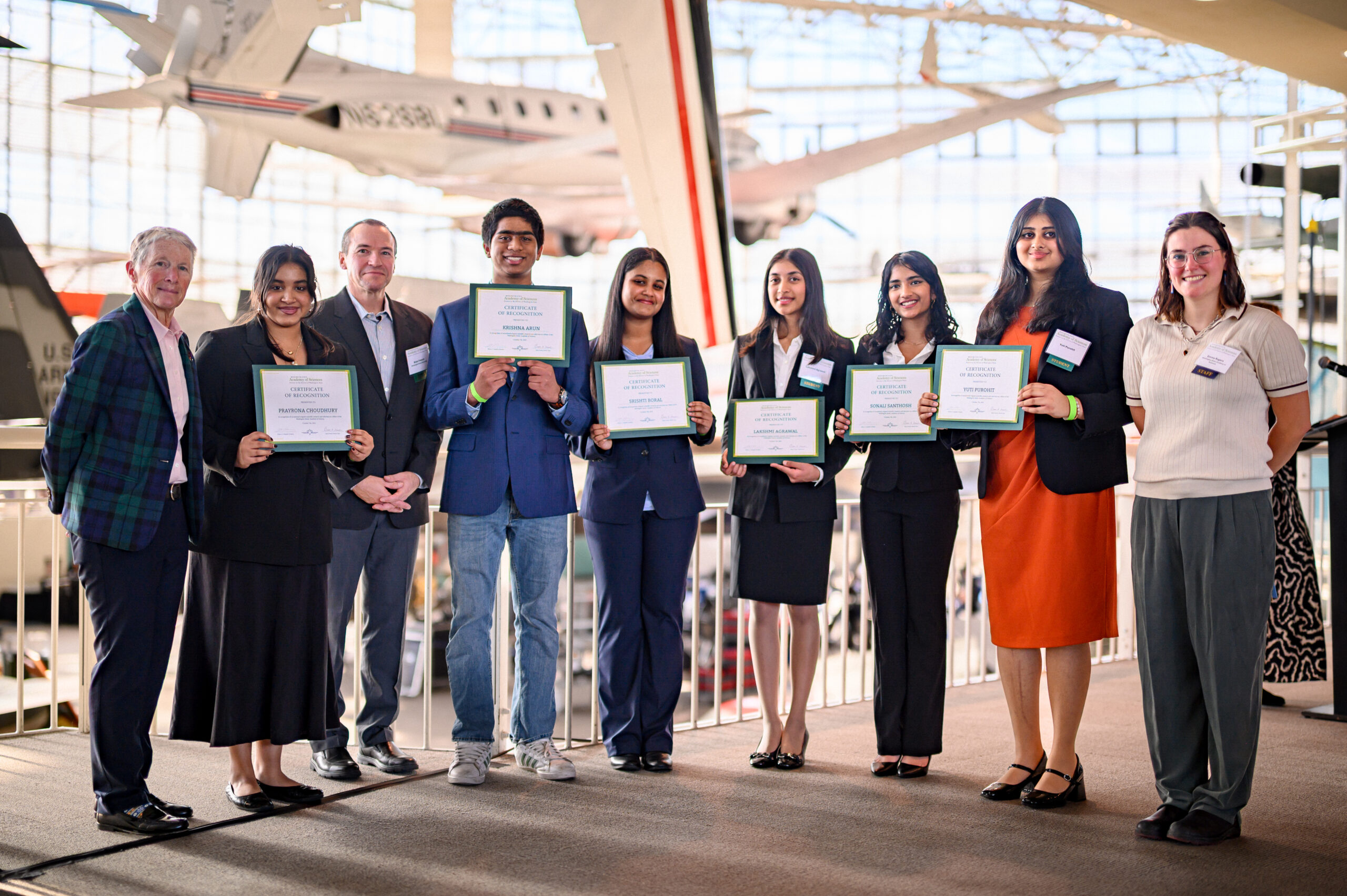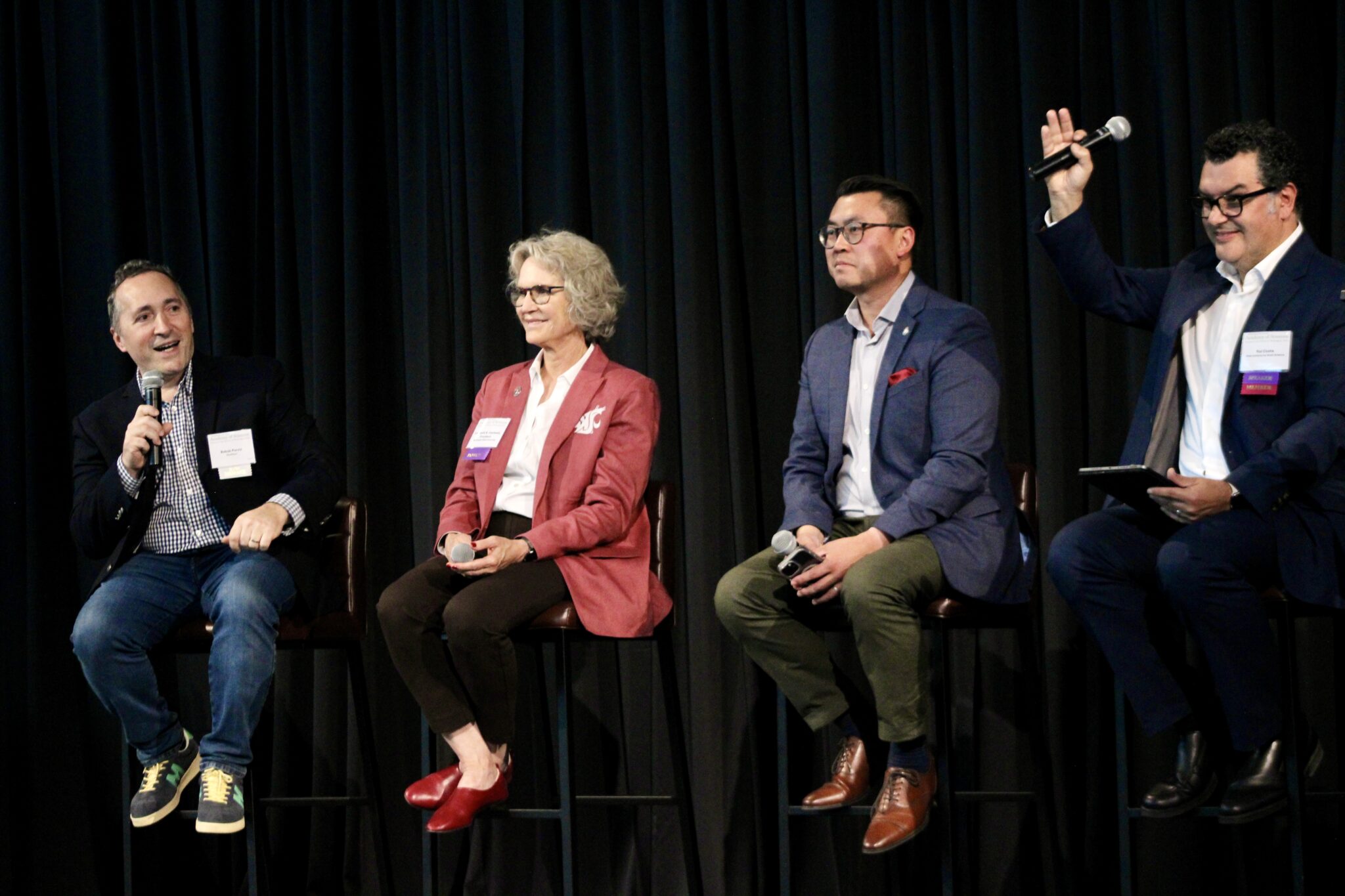
The Washington State Academy of Sciences (WSAS) is pleased to announce 21 new members, recognizing their outstanding record of scientific and technical achievement and their willingness to work on behalf of the Academy to bring the best available science to bear on issues within the state of Washington.
The 2020 class of new members is composed of 17 new elected members and 4 new members from the National Academies of Science, Engineering, and Medicine who live or work in Washington State. These new members bring diverse expertise and experience to WSAS.
New members will be inducted at the 13th Annual Members’ Meeting on September 10, 2020.
Individuals directly elected by the WSAS membership:
Nancy Allbritton, Frank & Julie Jungers Dean and Professor, College of Engineering, University of Washington
For outstanding contributions to the design and application of microtechnologies to biomedical research, leadership in interdisciplinary research and education, and entrepreneurial excellence.
Nathan Baker, PNNL Laboratory Fellow/UW-PNNL Distinguished Faculty Fellow, Pacific Northwest National Laboratory
For technical expertise evidenced by data science projects for NIH and other government sponsors, as well as leadership in signature discovery research, including projects in machine learning, decision support, risk analysis, and signal processing with applications in bioforensics, soil microbiomes, and nuclear non-proliferation.
Timothy Baszler, Professor, Paul G. Allen School for Global Animal Health, Washington State University
For leadership in laboratory systems for the detection and prompt confirmation of pathogen emergence and spread at the state, national, and global levels, and for providing the evidence base for control of emergent animal diseases as Executive Director of the Washington Animal Diseases Diagnostic Laboratory.
Kelly Brayton, Professor, Department of Veterinary Microbiology and Pathology, College of Veterinary Medicine, Washington State University
For ground-breaking research which has generated foundational genome information for important animal pathogens capable of causing significant illness in humans and animals, for internationally recognized research on tick-borne pathogens, and for advances in intracellular pathogen biology, transcriptomics, and immune evasion mechanisms.
Laura Griner Hill, Professor of Human Development and Vice Provost for Faculty Development and Affairs, Washington State University
For contributions to a significant shift in the field of prevention toward the study of how to effectively implement, evaluate, and scale up prevention programs, thereby significantly decreasing risk of substance abuse among youth at a population level.
John Hooper, Senior Principal – Director of Earthquake Engineering, Magnusson Klemencic Associates, Inc.
For exemplary contributions and tireless efforts in advancing the seismic design provisions of building codes; for advancing performance-based seismic design; and, for innovative seismic design of large, iconic projects in the Western United States and in seismic zones around the world.
Christine Luscombe, Robert J. Campbell Development Professor, Department of Materials Science and Engineering; Professor of Chemistry, University of Washington
For the development of controlled polymerization reactions for conjugated polymers, especially alkyl-thiophenes, for organic electronics applications.
Alair MacLean, Professor of Sociology, Washington State University
For significant contributions to the study of veterans of the armed forces serving in war and peace time, and contributions to understanding who serves and how military service shapes their lives with respect to their employment and earnings, as well as physical and mental health across the life course.
Marc Mangel, Distinguished Professor of Applied Math and Statistics, University of California, Santa Cruz (retired)
For a scientific career dedicated to use of quantitative methods to address ecological and evolutionary problems in the conservation and management of living natural resources.
Michael McDonell, Professor, Elson S. Floyd College of Medicine, Washington State University
For exceptional work developing treatment protocols that improve the lives of individuals who are negatively impacted by drug and alcohol misuse–especially those individuals in underrepresented populations.
Sterling McPherson, Associate Professor and Assistant Dean for Research and Director of Biostatistics and Clinical Trial Design, Elson S. Floyd College of Medicine, Washington State University
For exceptional national and internationally acclaimed contributions to addiction science, with an emphasis on co-addiction treatment development and the integration of technology into novel behavioral and pharmacotherapeutic treatments for substance use disorders, and his fostering of academic-industry partnerships.
Katrina Mealey, Professor and Associate Dean for Research, College of Veterinary Medicine, Washington State University
For widely acclaimed expertise in pharmacogenetics, and particularly for engaging in creative activities that have benefited veterinary medicine both locally and worldwide, leading to patents, work on national and international committees and advisory panels, and many influential published works.
David Montgomery, Professor, Department of Earth & Space Sciences, University of Washington
For fundamental contributions to geomorphology, for the elucidation of soils, rivers, and landscapes as underpinnings of ecological systems and human societies, and for reaching broad audiences through trade books on agriculture, microbes, creationism, and fisheries.
Sue Moore, Center for Ecosystem Sentinels, University of Washington
For contributions to the understanding of Arctic marine ecosystems and pioneering the integration of Conventional Science (CS) and Indigenous Knowledge (IK) to yield better policy decisions.
Philip Rasch, Chief Scientist & Laboratory Fellow, Pacific Northwest National Laboratory
For furthering knowledge about long-term impacts of human activities on climate and natural resources, improving the ability to model and predict climate change at regional and global scales, and for leadership in atmospheric science, acting as a resource for environmental stewardship and policy in Washington State.
Qin Zhang, Professor, Director of the Center for Precision & Automated Agricultural Systems, Washington State University
For contributions leading to the adoption of automation technologies to agricultural production, a recognizable contribution to core technology development for intelligent farming machinery and smart agriculture and pioneering the emerging science frontier by the proposed study of agricultural cybernetics.
Ning Zheng, Professor, Department of Pharmacology, University of Washington
For exceptional contributions to the understanding of the molecular mechanisms by which ubiquitin ligases, as a new class of enzymes, control protein ubiquitination in human physiology and diseases, as well as plant growth and development.
Washington residents selected by virtue of their election to the National Academies of Sciences (NAS), Engineering (NAE), or Medicine (NAM):
Elizabeth Halloran, Professor, University of Washington; Director, Center for Inference and Dynamics of Infectious Diseases, Fred Hutchinson Cancer Research Center; NAM, 2019
For pioneering work in the field of designing and analyzing vaccine studies, including studies of HIV vaccines and innovative use of mathematical and statistical methods to study infectious disease.
Steven L. Kramer, Professor, University of Washington; NAE, 2020
For contributions to geotechnical earthquake engineering, including liquefaction, seismic stability, and seismic site response.
Ronald Klemencic, Chairman and Chief Executive Officer, Magnusson Klemencic Associates, Inc; NAE, 2020
For innovation in the design of high-rise buildings worldwide and for research and design guidelines to advance structural engineering practices.
Karl N. Fleming, President, KNF Consulting Services LLC; NAE, 2020
For contributions to probabilistic risk assessment methods and their application to enhance the safety of nuclear power facilities.
Related Posts
January 23, 2026
A new initiative from the Washington State Academy of Sciences called Growing with AI will bring together the state’s tech giants and diverse farming community to tackle pressing challenges in the agriculture industry.
October 28, 2025
WAJAS is a WSAS program recognizing exceptional high school students from across the state for outstanding original scientific research and offering opportunities to connect with the research community in Washington and beyond. Fellows were publicly honored alongside Washington's top researchers at the WSAS 20th Anniversary Celebration on October 7.
October 14, 2025
Amid political polarization and uncertain federal research policy, Washington leaders are betting on stability through a unique innovation ecosystem rooted in the state’s institutions and businesses. That was a theme at the 20th anniversary celebration of the Washington State Academy of Sciences, held Tuesday evening at Seattle’s Museum of Flight.


